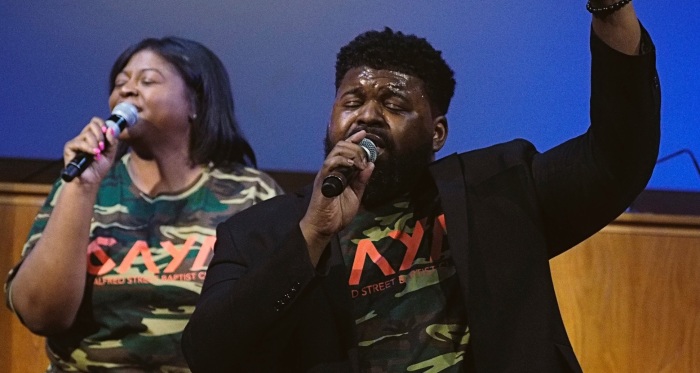
ALEXANDRIA, Virginia — If the Western Church is to be effective in its mission as it loses favor in secular society, it's going to mean embracing peacemaking and remembering our role as a royal priesthood, speakers at Missio Alliance's Awakening Conference advised.
Theologians and pastors from around the country spoke about the future of the Western Church as Christianity loses its place of privilege in secular society that it held for centuries. The discussion was part of a panel at Alfred Street Baptist Church on March 29.
Faced with the need for a new missional approach to engaging the culture, Al Tizon, a professor of missional and global leadership at North Park University in Chicago, Illinois, said he believes Christians must embrace peacemaking and reconciliation as a Gospel imperative.
"In our brokenness we have made a bloody mess of God's beautiful, diverse world," Tizon said, adding that the human condition is the same all around the world.
"I contend that in a world literally quaking and cracking along racial, ethnic and cultural fault lines, the Church must embrace peacemaking and reconciliation as the primary paradigm for mission today," he continued. "We can no longer relegate peacemaking to fringe pacifists and historic peace churches. Peacemaking needs to be central to the whole churches whole mission throughout the world."
He added that he wants the word "peace" to become as hip as justice has become.
Keesha Polonio, associate director of the Tampa Underground Network, stressed that it's vital for Christians to consider the image of the curtain in the temple being torn when Christ was crucified, particularly their role as priests.
"We need to remember that the veil was split in two and that now I, you, we can interact and engage with the Holy One. We have direct access," she said, referencing 1 Peter 2:9 in which Apostle Peter speaks of God's people being a royal priesthood.
"But I wonder if the Church has forgotten this?" she posited. "Will the Church give everyone an opportunity to live out their responsibility as a priest?"
That might mean for churches to give up their freedom to dream in order that the dreams of others can live, she suggested.
What this would look like, she said, would mean "we'd let the voices of the people we seek to serve to dictate our programs and our infrastructure and not the other way around. And don't let our fear and the risky nature of freedom constrict us and control us.
"We have to suspend the idea that our way is the right way. We have to give up our bent toward micromanaging" and instead release people to do what God has called them to do, she stressed.
In many respects the Church — and its insistence upon specific structures — needs to get out of the way, she said.
In Polonio's ministry, she said they try to see everyone as priests. Her "parish," she said, is in strip clubs as she ministers to women ensnared in the sex industry. On any given Friday when she gives altar calls it is to music blaring overhead, surrounded with the smells of drugs and alcohol.
"My sermons are small. And they start with makeup tutorials" she said, as people often ask her about her hair and what products she uses.
"But at the end, I get to remind them of the truth, in 1 John, that there is a God who sees them, who knows them and is calling them out of their darkness into a wonderful light.
Our missional future hinges on the Church remembering that the veil is torn, that we are all a priesthood of believers, a community of sent ones.
"We have simple ecclesiology," she said, "Worship, mission, and community. Wherever those three things come together, that is the church."
When everyday people realize that they are priests they are empowered to do whatever it is that God has called them to do and the church infrastructure supports to come alongside them, she said.
The Awakenings Conference was a three-day event that concluded March 30.



